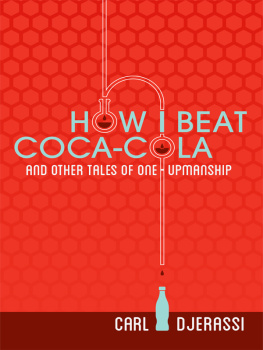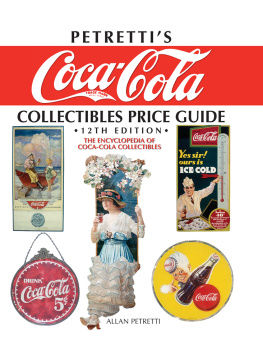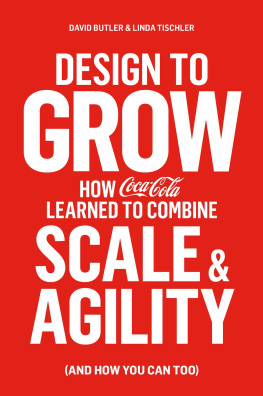Between Marx and Coca-Cola
Between Marx and
Coca-Cola
Youth Cultures in Changing European
Societies, 19601980
Edited by
Axel Schildt and Detlef Siegfried
Sponsored by the Fritz Thyssen Stiftung, Cologne
First published in 2006 by
Berghahn Books
www.berghahnbooks.com
2006 Axel Schildt and Detlef Siegfried
First paperback edition published in 2007
First ebook edition published in 2014
All rights reserved. Except for the quotation of short passages for the purposes of criticism and review, no part of this book may be reproduced in any form or by any means, electronic or mechanical, including photocopying, recording, or any information storage and retrieval system now known or to be invented, without written permission of the publisher.
Library of Congress Cataloging-in-Publication Data
Societies, 19601980 / edited by Axel Schildt and Detlef Siegfried.
p. cm
Includes bibliographical references and index.
ISBN:
978-1-84545-009-0 (hbk.) -- 978-1-84545-333-6 (pbk.) -- 978-0-85745-685-4 ebook
1. Youth--Europe. 2. Young consumer--Europe. 3. Youth--Europe-
Political activity. 4. Popular culture--Europe. 5. Subculture--Europe.
6. Social change--Europe. I. Schildt, Axel. II. Siegfried, Detlef.
HQ799.E9B47 2005
305.23509409045--dc22
2004055425
British Library Cataloguing in Publication Data
A catalogue record for this book is available from the British Library
ISBN 978-1-84545-009-0 hardback
ISBN 978-1-84545-333-6 paperback
ISBN 978-0-85745-685-4 ebook
Contents
Axel Schildt and Detlef Siegfried
Arthur Marwick
Detlef Siegfried
Rob Kroes
Peter Wicke
Konrad Dussel
Axel Schildt
Uta G. Poiger
Wilfried Mausbach
Henrik Kaare Nielsen
Steven L.B. Jensen
Thomas Etzemller
Dagmar Herzog
Julian Bourg
Barry Doyle
Thomas Ekman Jrgensen
Franz-Werner Kersting
Klaus Weinhauer
Acknowledgements
We would like to thank all those who contributed to the production of this volume primarily those who presented papers, chaired sessions and participated in the discussions, at a stimulating conference in Copenhagen, May 2002. Furthermore, we very much appreciate those authors who subsequently joined this project. In particular, we are grateful to the Fritz Thyssen Stiftung, Cologne, for their generous financial support without which the conference could not have taken place nor this volume been published. We are also indebted to the Goethe-Institut and the German embassy in Copenhagen for their cooperation and hospitality. Hans Srensen was a great help during the course of organizing the conference. Nora Helmli, Julia Kramer, Olaf Kruithoff, Birte Lotz, Peter Pritchard, Bernd Trommer, and Wayne Yung provided essential assistance during the translation and editing of the manuscript.
Axel Schildt and Detlef Siegfried
Hamburg/Copenhagen, December 2004
Introduction
Youth, Consumption, and Politics in the Age of Radical Change
Axel Schildt and Detlef Siegfried
In his movie MasculinFminin or: The Children of Marx and Coca-Colaa 1965 French-Swedish coproductionJean-Luc Godard depicts the complicated love affair of two children of the 1960s, a young man with social interests and a young female pop vocalist, who regularly frequented Parisian coffee houses. The movie, blending fictional and documentary elements, dealt with the problem of navigating in a world in which politics involved individuals more than before and in which consumption on an unprecedented level opened up a myriad of opportunities to pursue ones life. The movie succeeded as a political commentary of its time and as a document of an age because, in a delightful manner, it pointedly gave a name to one of its time central spheres of tension. The paradigm Marx represented the renaissance of the political sphere, Coca-Cola stood for the growing importance of consumptionboth images and icons of, above all, youth culture. In a handy title Godard integrated what many contemporaries had discerned as an evident characteristic of the time: that political transformations and changes within the culture of everyday life were evolving simultaneously and were merging with each other. In a report of the West German news magazine Der Spiegel, it was apparent that contemporaries were having a hard time coming to terms with this unfamiliar combination:
The reception of medially promoted youth idolsthe Beatles for instanceand the international proliferation of new patterns of expressionthe consumption of music for instanceas well as students new forms of political protest (1968) were considered as core elements of a new youth culture. Increasing focus on consumption and a coinciding increase of politicizationa relationship full of contradictions and tensionswere the unmistakable characteristics of the 1960s and the 1970s. Contemporaries of the period observed a particularly striking contradiction in this situation, which would play a large part in increasing social tensions during these two decades: on the one hand, youth were striving towards individual self-actualization like never before (because consumer society was presenting an unprecedented variety of possibilities towards achieving this goal); on the other hand, the rapid expansion of consumer choices (as touted by the industry) was developing into the guiding principle of mainstream life. This in turn was often seen as manipulative, not least by the tone-setting cliques of the future elites.
Subcultures such as the hippies embodied a protest against mainstream society, which perpetuated the endless cycle of work and consumption. At the same time, members of these subcultures were using elements of consumer culture in the creation and promotion of their own styles. Many of these elements were in themselves neither political nor apolitical, but rather simply ingredients of a lifestyle revolution; as such, however, they became loaded with definite political subtexts. The consumer industry would then co-opt these subcultural impulses, making them available to a much larger audience of young people. In this way, subcultures infiltrated mass culture; but the subcultures regarded this as a commercial appropriation of originally oppositional styles, which destroyed their revolutionary potential. Therefore, new deviant styles had to be developed, to stand outside the established ones. This confrontation between mass culture and counterculture fostered an ongoing process of innovation. This contradictory state, which is still characteristic today, was particularly pronounced during its initial phase of evolution and, in numerous countries, it was at the center of vehement and controversial debates. Therefore, within this tense relationship between consumption and political interestbetween overbearance by the cultural industry and self-realizationa transnational scope of problems becomes discernable, which is suitable as a backdrop for a comprehensive assessment of the various societies.









